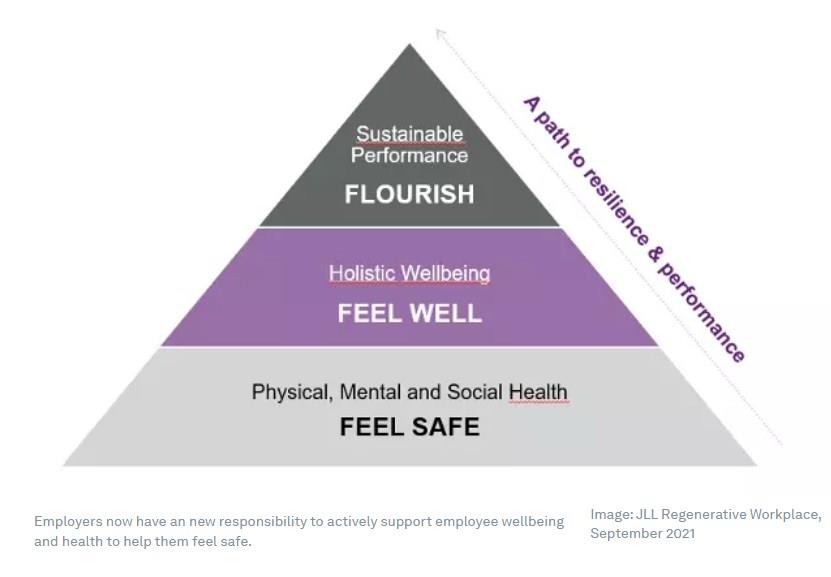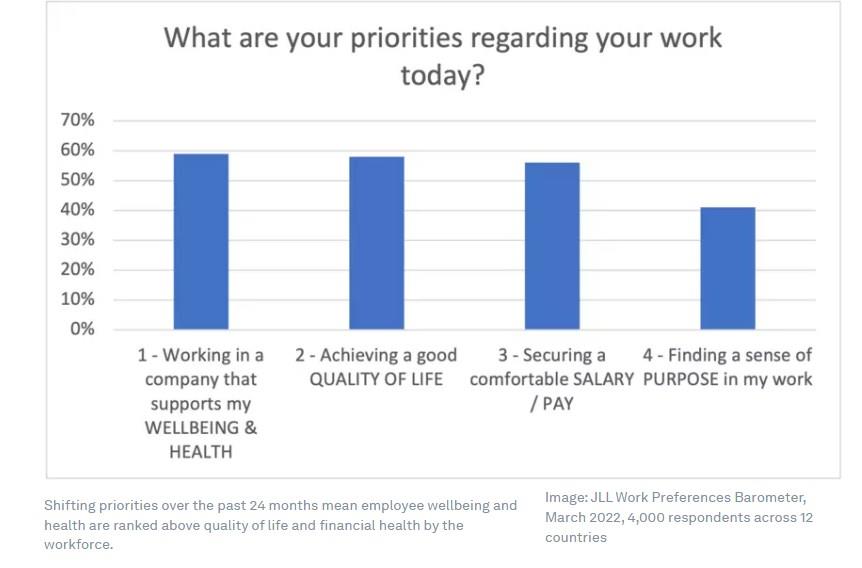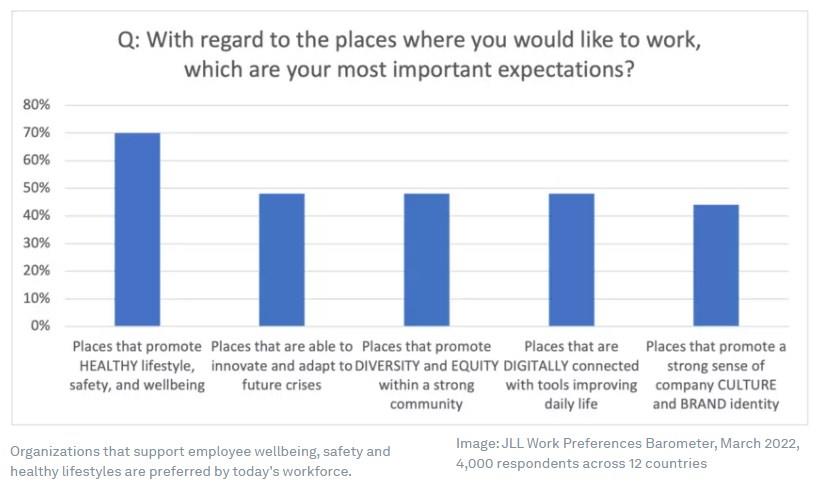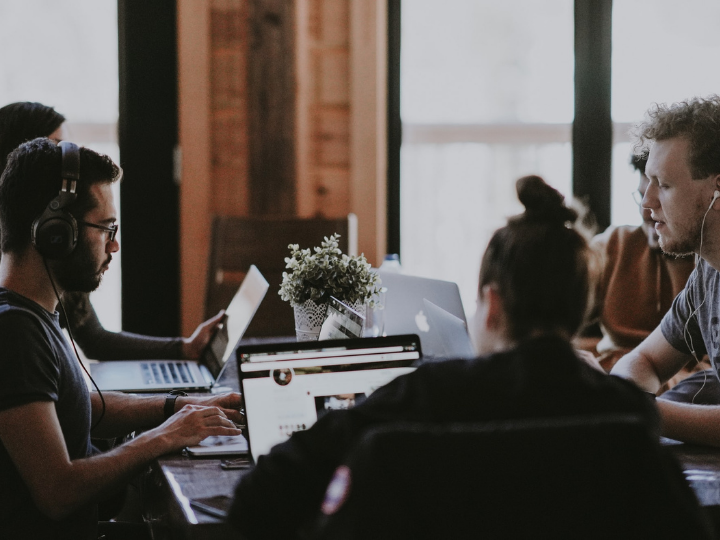by Marie Puybaraud*
Unlocking workforce resilience through health is an opportunity for employers to acknowledge the new needs of employee wellbeing and to take a holistic approach to shaping empowering environments.
Employee wellbeing, resilience and performance
The last 24 months have highlighted the true value of the workforce’s contribution to company success. While the pandemic has tested workforce resilience, the crisis has shown that people can manage and cope with personal struggles and change with minimal losses, remaining optimistic and finding opportunities for rewarding work. Physical, mental and social health are necessary to boost employee wellbeing, resilience and performance, so employers have a new responsibility to actively support the health and wellbeing needs of the workforce to help them feel safe and to flourish.

The need for employers to address the impact of the pandemic on employee wellbeing is clear. JLL’s March 2021 research shows employees expect employers to help them address their challenges and, according to our latest research in March 2022, 49% of employees still feel overwhelmed by a huge mental overload. Additionally, 46% feel isolated from their colleagues and 49% believe they are at risk of burnout due to professional or personal mental load.
The priorities of the workforce have significantly shifted, ranking health and wellbeing above quality of life and financial health.

Using hybrid to reimagine the future of work
Throughout the pandemic, we have seen that workforce resilience has enabled businesses to cope with significant and uncontrollable disruptions around work.
Hybrid work emerged as an eye-opener for employers but also a challenge for both employees and employers, requiring a different mindset and new policies to adapt to remote working. Hybrid work has presented an opportunity for employers to acknowledge the new health and wellbeing needs of the workforce and to take a holistic approach to shaping a truly empowering hybrid work environment. Hybrid work is complex, however, and requires game-changing shifts:
-From a workplace-centric to worker-centric world: A human-centric perspective is leading. Social relations are core to the resilience of hybrid workers.
-From a static and fixed to a dynamic and fluid workplace: Hybrid workers use creative strategies to regain and sustain their energy levels.
-From time management to energy management: Workdays are nonlinear. Hybrid workers experience peaks and troughs of energy as they navigate their day.
We found that hybrid workers adapt their work environments to suit their preferences, find inspiration and create a ‘safe place’ to work. While the definition of place has expanded, the office remains the centre of the work ecosystem. In the long term, the office will remain central to working life, according to 61% of employees. Employers who focus on people will rebuild confidence and bring teams back to the office as a regenerative environment.
Creating a regenerative workplace
Employees have a net-zero tolerance for employers who are not engaged on all fronts and, in this uncertain environment, it is becoming increasingly clear that employers have the opportunity to show their workforce they genuinely care about employee wellbeing. While 50% of employees believe their employer provides a great place to work and 47% feel more productive in the office, 70% believe that offering remote/hybrid working will be fundamental to retaining workers in the future.
The reality of the ‘Great Resignation’ is growing, however, pushing employers to prove that they are listening to employees’ concerns and expectations – whether it is about action on climate change, corporate social responsibility, or a better world of work.
Health and sustainability, resilience, diversity, equity, and inclusion must be key priorities for employers when reimagining the future of work. Our research shows that eight out of 10 people find a sustainably-designed office (incorporating nature, eliminating waste, energy efficient etc) appealing to work in, and 64% are enthusiastic about office spaces that are fully open and collaborative with no fixed desk spaces.

In responding to these new aspirations, the most forward-looking and talent-focused companies are already shaping a caring and regenerative workplace by:
-Engaging with employees to understand how their work gets done
-Creating an office environment that supports people’s workflow
-Providing robust employee wellbeing and health services and solutions
-Working with managers and leaders so they become facilitators of a more resilient organization and workforce
-Creating a hybrid model to enable work from anywhere with flexible working arrangements.
While the pandemic has tested people’s resilience, it has also posed an underlying threat to health. Unlocking workforce resilience through physical, mental, and social health is critical for the future of work. Employers who adapt to the highly dynamic environment and new rhythms of the redefined hybrid workplace have the opportunity to energize the workforce.
*Global Head of Corporate Solutions Research, JLL
**first published in: www.weforum.org




 By: N. Peter Kramer
By: N. Peter Kramer
